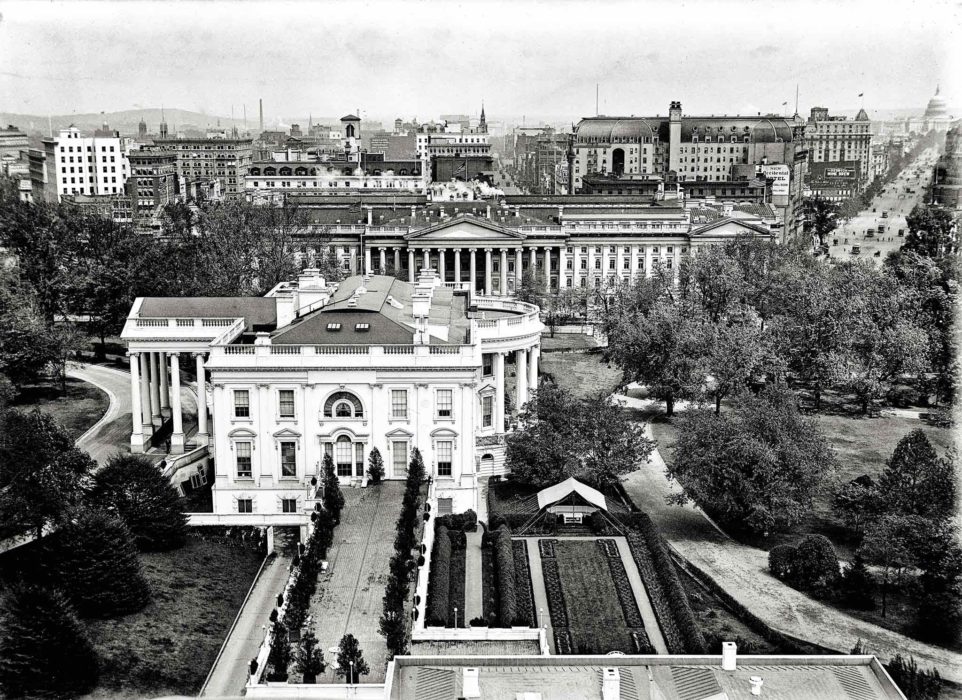AT ABOUT TWO O’CLOCK on Tuesday, April 23, 1912, Louis Gregory walked up the limestone steps to the front door of the Persian Legation at 1832 16th Street, NW, in Washington, DC. This four-level house, its facade built from green serpentine rock, was the nearest thing to an embassy the Persian government had in the United States. Its Chargé d’Affaires — Ali-Kuli Khan — was the closest thing Persia had to an ambassador.
The Legation stood less than a mile southwest of Howard University. ‘Abdu’l-Bahá had been driven here immediately after his speech to the student body at Rankin Chapel, in order to attend a formal luncheon that Khan was holding in his honor. But after the talk, ‘Abdu’l-Bahá had sent a message to Gregory to meet him at the Legation for a private conversation.
The interview, Gregory later recalled, went on and on. ‘Abdul-Bahá seemed to be prolonging it. When dinner was announced ‘Abdu’l-Bahá stood, and everyone followed him into the dining room. Everyone, that is, except Louis Gregory. It was only 1912: Social Washington did not invite colored people to dinner.
Formality had laid out nineteen place settings along the sides of the long, rectangular banquet table according to strict Washington protocol. Good taste had strewn the table with rose petals. Regard had seated ‘Abdu’l-Bahá at its head. The guests took their seats.
Suddenly, ‘Abdu’l-Bahá stood up and looked around the table.
“Where is Mr. Gregory?” he asked. “Bring Mr. Gregory!” he told Ali-Kuli Khan.
Khan had no choice but to locate Mr. Gregory, whom he found trying to slip quietly out of the house without being noticed. By the time he re-entered the dining room with Louis Gregory, Social Washington had succumbed.

‘Abdu’l-Bahá had pushed aside the utensils, plates, and glasses that held sway over the place of honor to his right. Everyone moved over, sending a ripple of activity down one side of the table. In its place, he had laid out a twentieth place setting and ordered a twentieth chair brought to the table. Here he seated Louis Gregory. ‘Abdu’l-Bahá then sat down, explained that he was very happy to have Mr. Gregory here, and, as if nothing out of the ordinary had just occurred, began to speak on racial prejudice.
On Tuesday, April 23, 1912, ‘Abdu’l-Bahá had begun his attack on the social conventions of the color line. His discourse on race would soon engage the diverse range of public positions on the subject, which had emerged as agents of, or as reactions and accommodations to, a scientific, political, and cultural program that had entrenched itself in American life since the end of Reconstruction.
In taking on the paramount issue of race, ‘Abdu’l-Bahá was just getting started.






